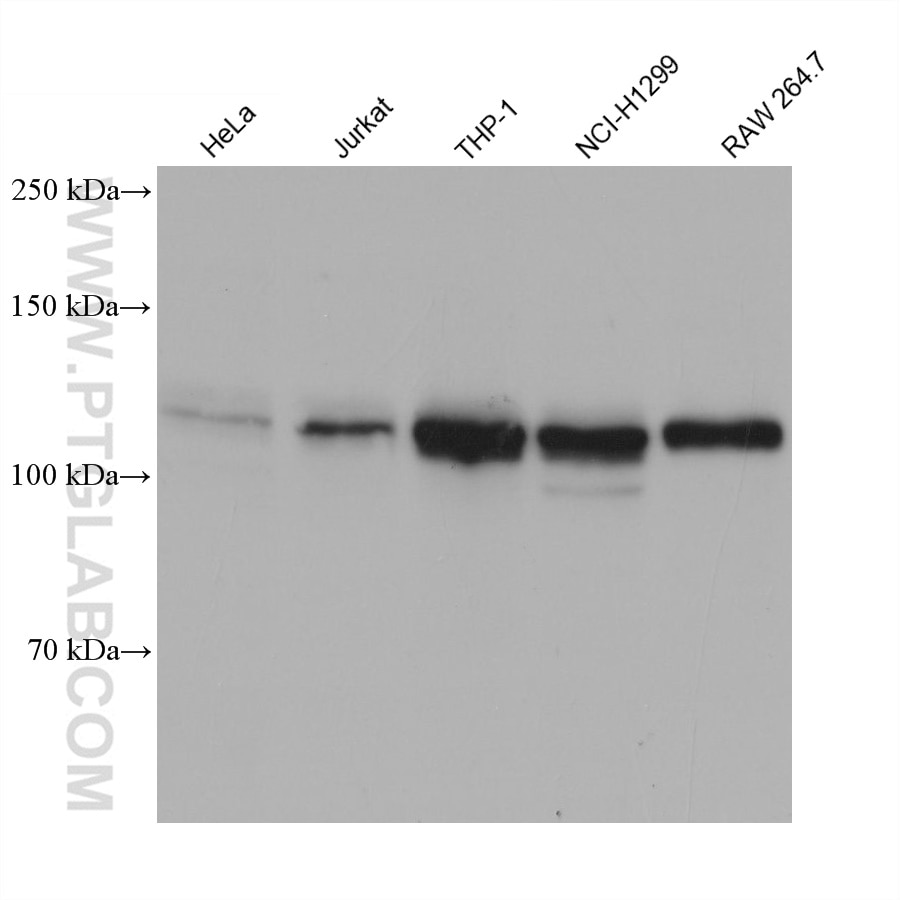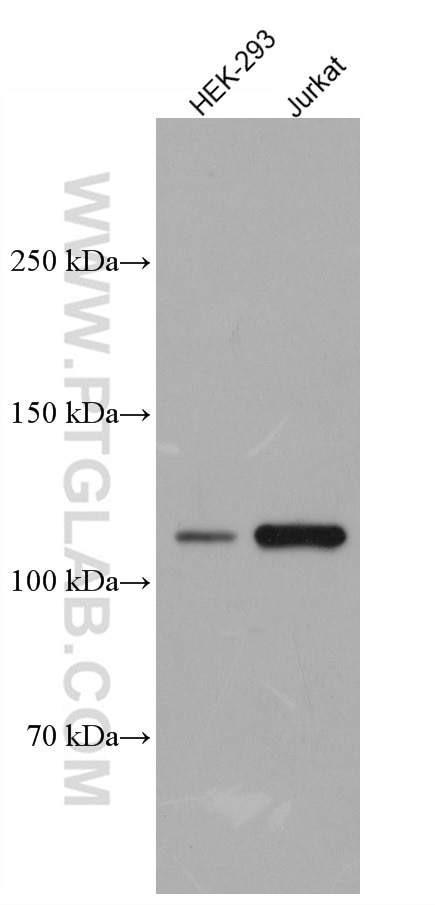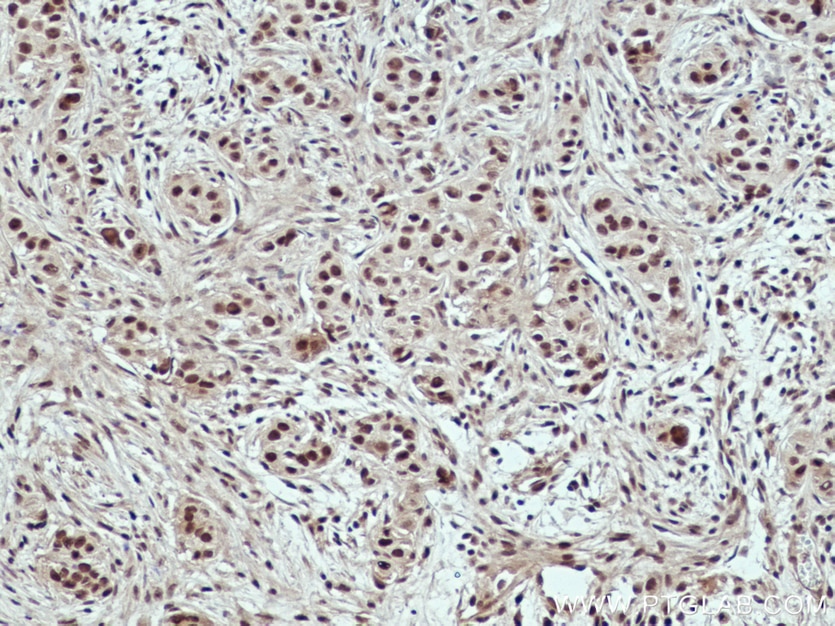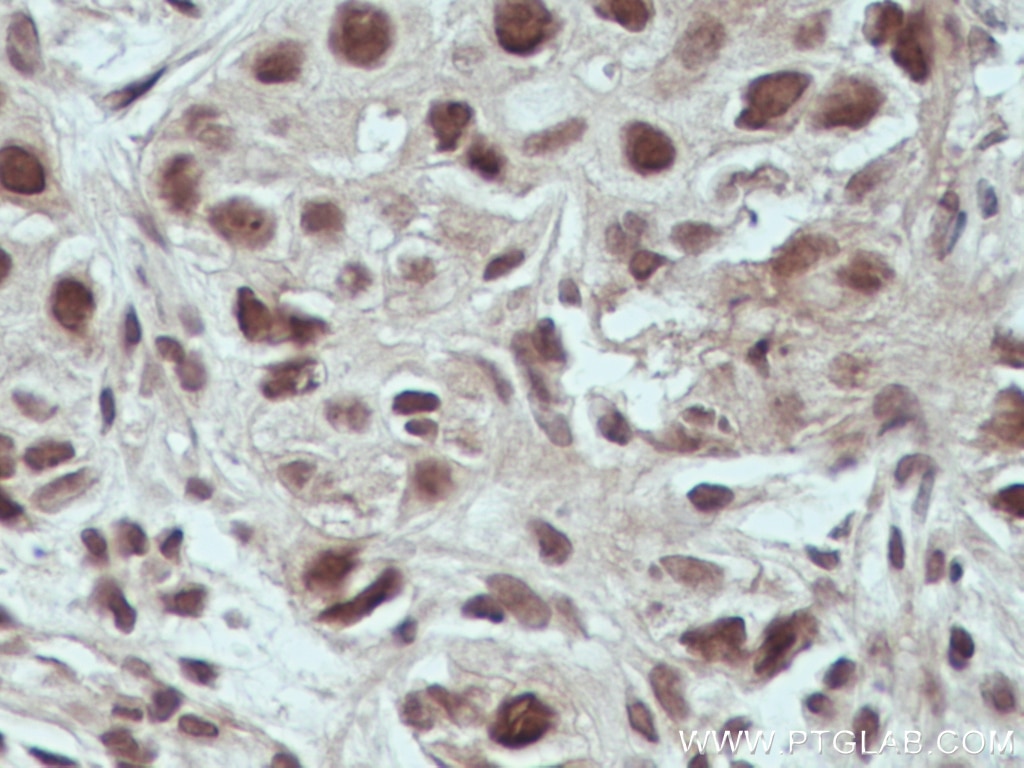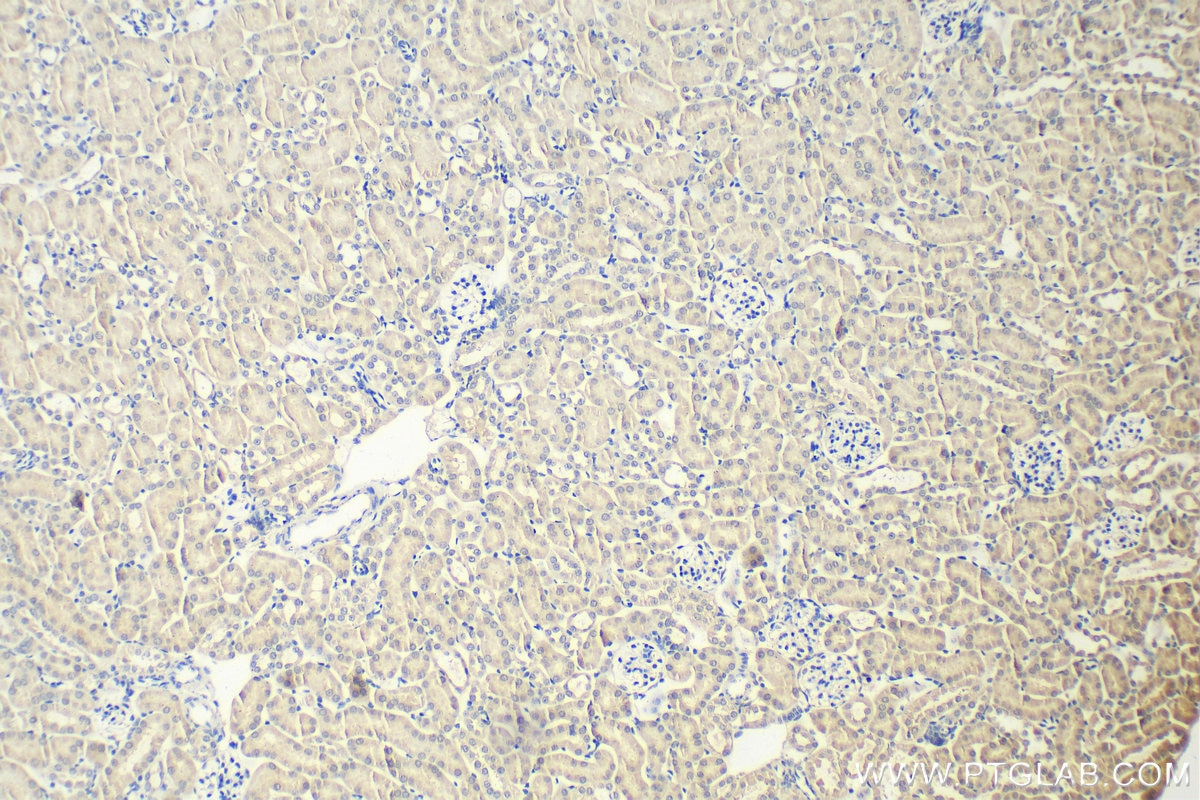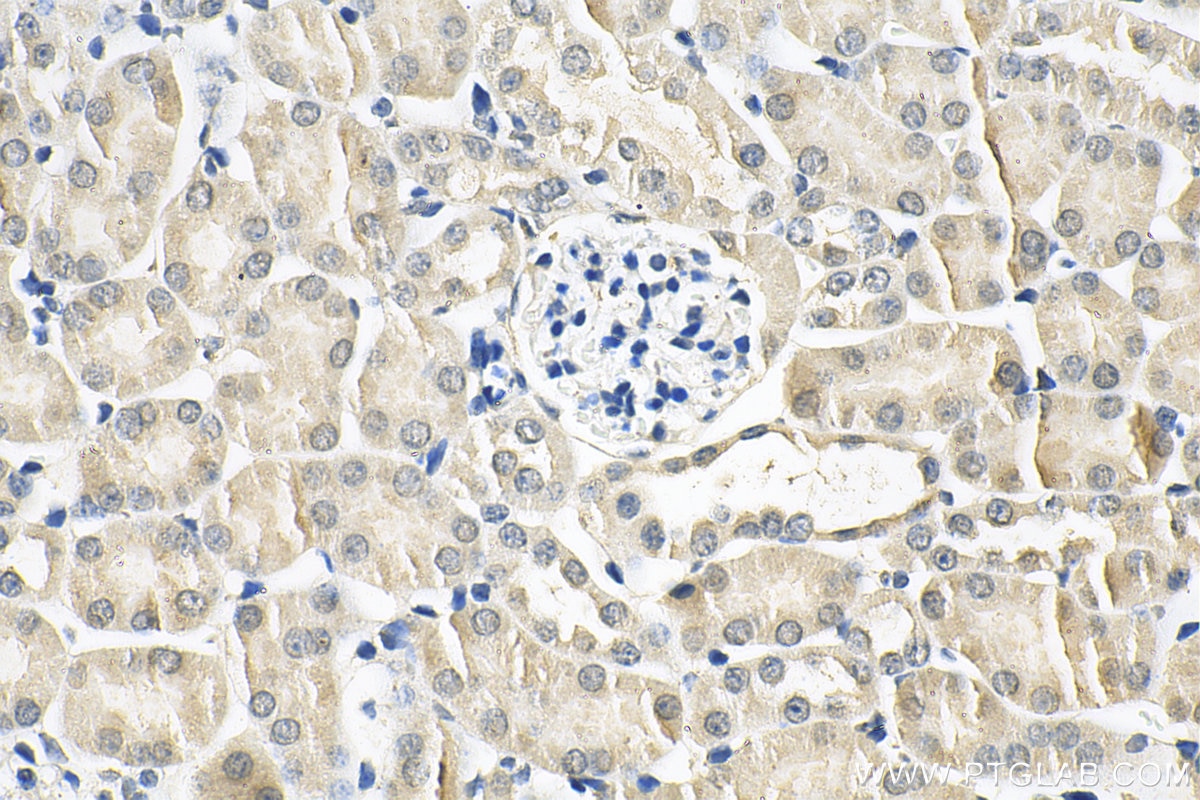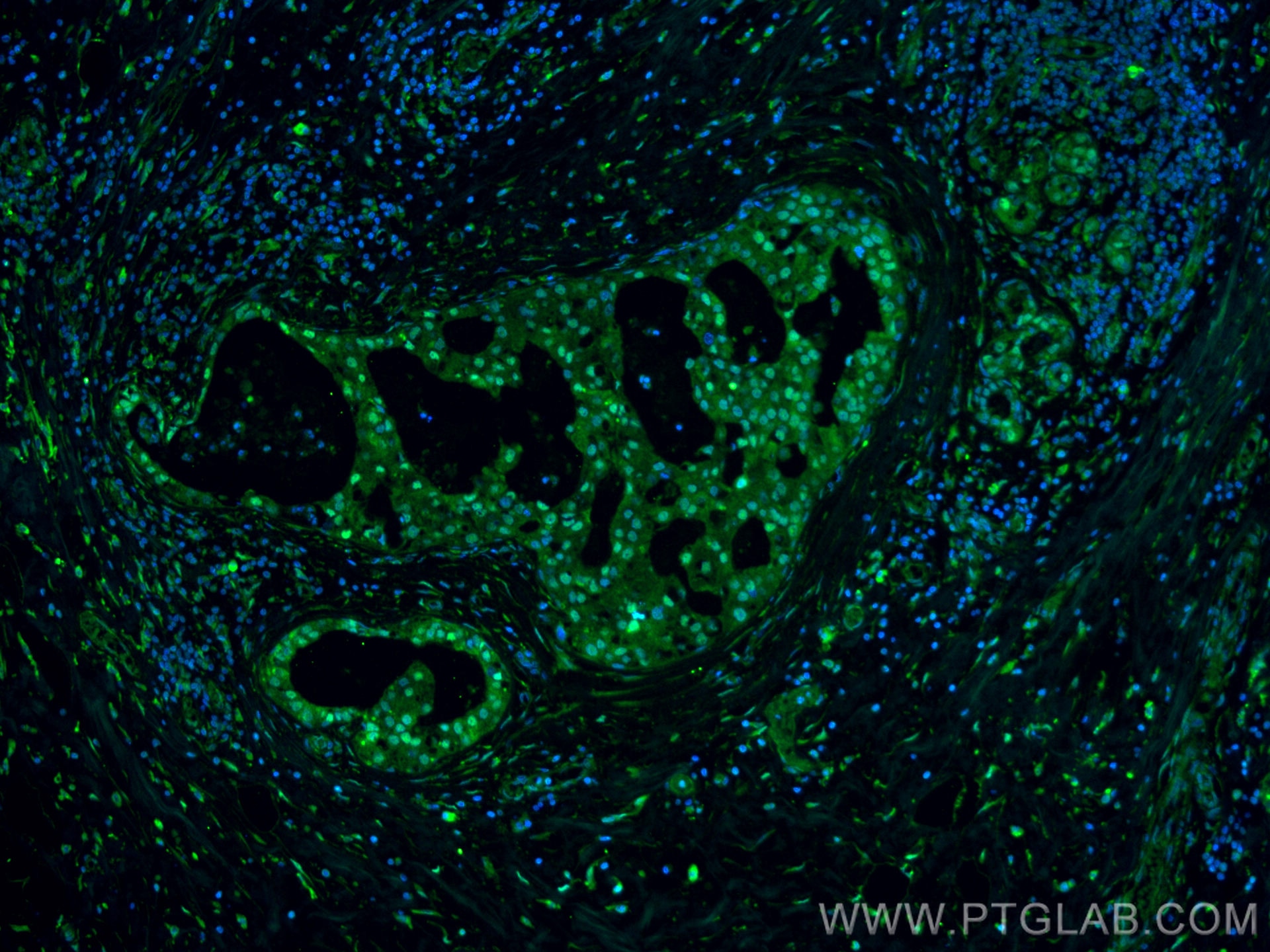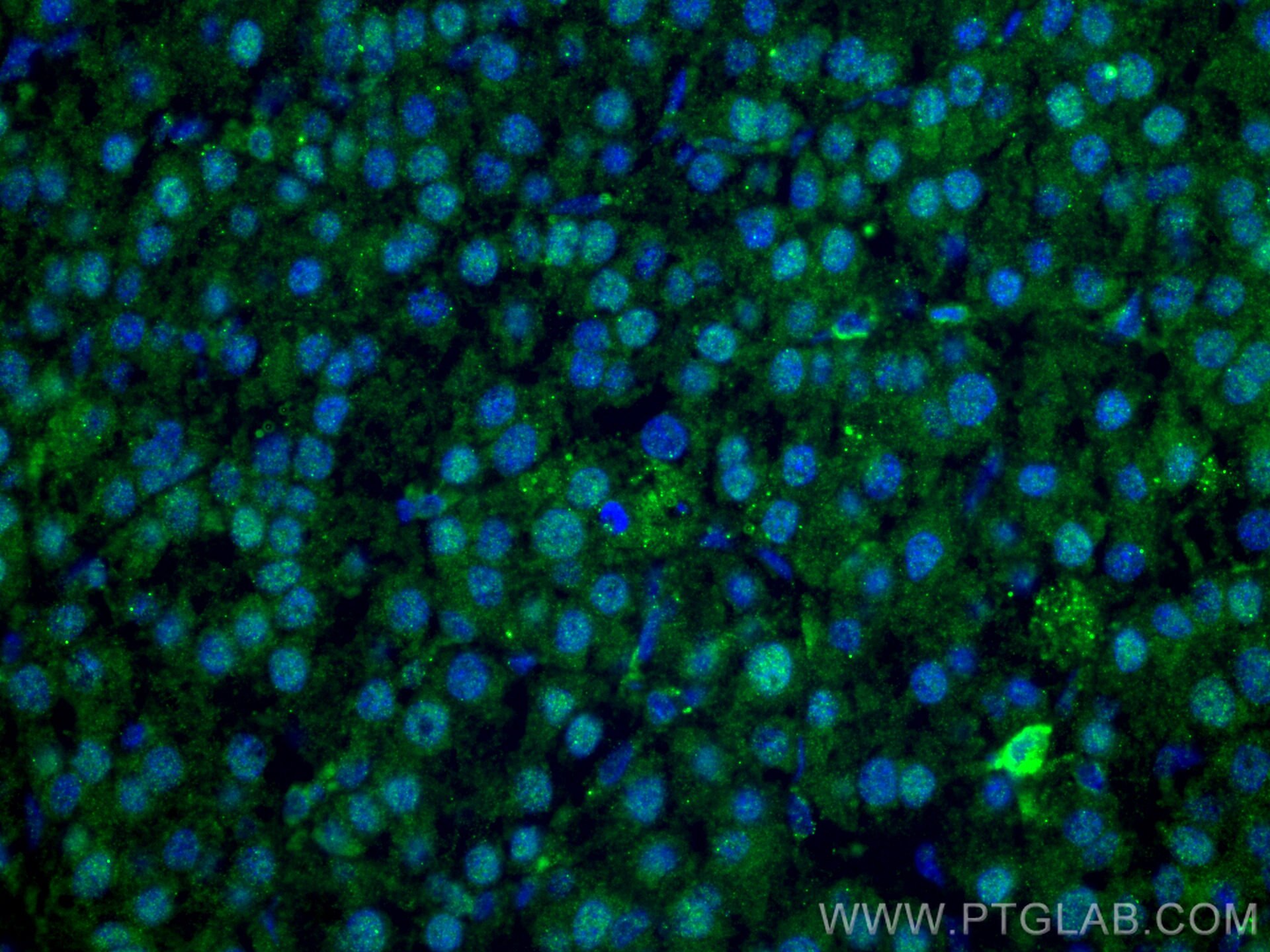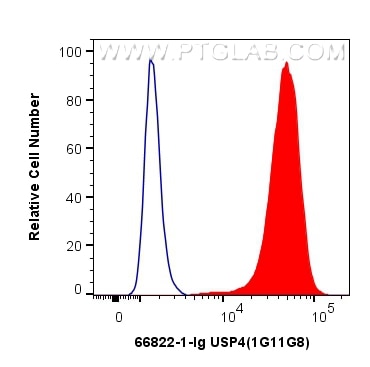Tested Applications
| Positive WB detected in | HeLa cells, Jurkat cells, HEK-293 cells, THP-1 cells, NCI-H1299 cells, RAW 264.7 cells |
| Positive IHC detected in | human breast cancer tissue, mouse kidney tissue Note: suggested antigen retrieval with TE buffer pH 9.0; (*) Alternatively, antigen retrieval may be performed with citrate buffer pH 6.0 |
| Positive IF-P detected in | human breast cancer tissue, human liver cancer tissue |
| Positive FC (Intra) detected in | THP-1 cells |
Recommended dilution
| Application | Dilution |
|---|---|
| Western Blot (WB) | WB : 1:1000-1:6000 |
| Immunohistochemistry (IHC) | IHC : 1:100-1:300 |
| Immunofluorescence (IF)-P | IF-P : 1:50-1:500 |
| Flow Cytometry (FC) (INTRA) | FC (INTRA) : 0.40 ug per 10^6 cells in a 100 µl suspension |
| It is recommended that this reagent should be titrated in each testing system to obtain optimal results. | |
| Sample-dependent, Check data in validation data gallery. | |
Published Applications
| WB | See 7 publications below |
| IHC | See 2 publications below |
| IF | See 2 publications below |
| IP | See 2 publications below |
Product Information
66822-1-Ig targets USP4 in WB, IHC, IF-P, FC (Intra), IP, ELISA applications and shows reactivity with human, mouse samples.
| Tested Reactivity | human, mouse |
| Cited Reactivity | human, mouse |
| Host / Isotype | Mouse / IgG2b |
| Class | Monoclonal |
| Type | Antibody |
| Immunogen |
CatNo: Ag28297 Product name: Recombinant human USP4 protein Source: e coli.-derived, PET28a Tag: 6*His Domain: 567-779 aa of BC125131 Sequence: VCSTSVDGSECVTLPVYFRERKSRPSSTSSASALYGQPLLLSVPKHKLTLESLYQAVCDRISRYVKQPLPDEFGSSPLEPGACNGSRNSCEGEDEEEMEHQEEGKEQLSETEGSGEDEPGNDPSETTQKKIKGQPCPKRLFTFSLVNSYGTADINSLAADGKLLKLNSRSTLAMDWDSETRRLYYDEQESEAYEKHVSMLQPQKKKKTTVALR Predict reactive species |
| Full Name | ubiquitin specific peptidase 4 (proto-oncogene) |
| Calculated Molecular Weight | 963 aa, 109 kDa |
| Observed Molecular Weight | 109 kDa |
| GenBank Accession Number | BC125131 |
| Gene Symbol | USP4 |
| Gene ID (NCBI) | 7375 |
| RRID | AB_2882165 |
| Conjugate | Unconjugated |
| Form | Liquid |
| Purification Method | Protein A purification |
| UNIPROT ID | Q13107 |
| Storage Buffer | PBS with 0.02% sodium azide and 50% glycerol, pH 7.3. |
| Storage Conditions | Store at -20°C. Stable for one year after shipment. Aliquoting is unnecessary for -20oC storage. 20ul sizes contain 0.1% BSA. |
Background Information
USP4, also named as UNP and UNPH, belongs to the peptidase C19 family and USP4 subfamily. USP4 is a deubiquitinating enzyme that links to mitogen-activated protein kinase signaling, pre-mRNA splicing, and control of p53 stability (PMID: 26455393). USP4 has 3 isoforms with the molecular mass of 36, 104 and 109 kDa. Recently, it has been reported that USP4 is a critical factor in promoting lung cancer stemness and potentially useful lung cancer prognosis marker (PMID: 32549341).
Protocols
| Product Specific Protocols | |
|---|---|
| FC protocol for USP4 antibody 66822-1-Ig | Download protocol |
| IF protocol for USP4 antibody 66822-1-Ig | Download protocol |
| IHC protocol for USP4 antibody 66822-1-Ig | Download protocol |
| WB protocol for USP4 antibody 66822-1-Ig | Download protocol |
| Standard Protocols | |
|---|---|
| Click here to view our Standard Protocols |
Publications
| Species | Application | Title |
|---|---|---|
Cell Death Dis USP4 promotes the proliferation, migration, and invasion of esophageal squamous cell carcinoma by targeting TAK1 | ||
Phytomedicine Vialinin A alleviates oxidative stress and neuronal injuries after ischaemic stroke by accelerating Keap1 degradation through inhibiting USP4-mediated deubiquitination | ||
bioRxiv The DNA helicase FANCJ (BRIP1) functions in Double Strand Break repair processing, but not crossover formation during Prophase I of meiosis in male mice | ||
Autophagy USP4 depletion-driven RAB7A ubiquitylation impairs autophagosome-lysosome fusion and aggravates periodontitis | ||
PLoS One USP4 promotes the proliferation and glucose metabolism of gastric cancer cells by upregulating PKM2 | ||
Cell Death Dis USP4-mediated CENPF deubiquitylation regulated tumor metastasis in colorectal cancer |

